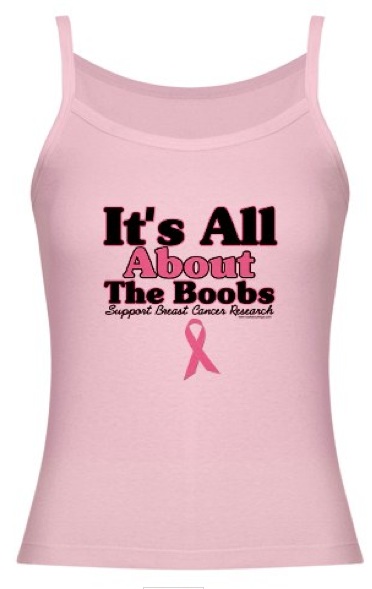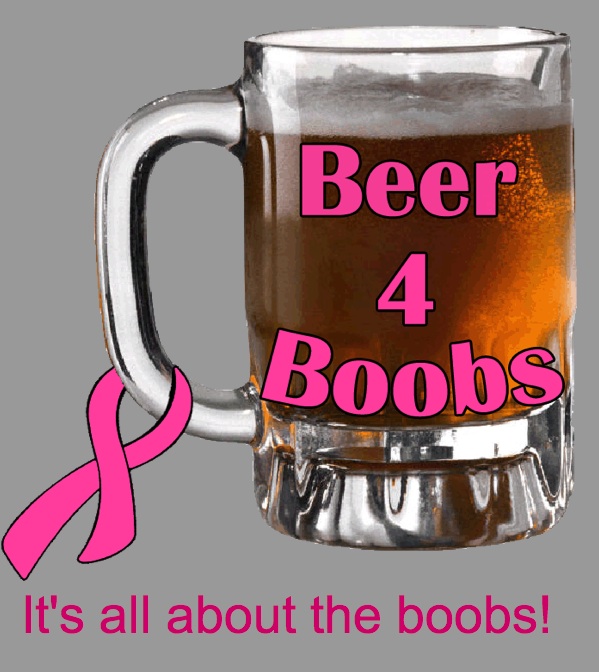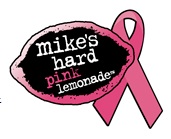How "Breast Cancer Awareness" Campaigns Hurt
 October is Breast Cancer Awareness month. Pink ribbons abound at department stores, grocery stores, gas stations, shopping malls and many other places. But the big "awareness" push may be misplaced. After all, lung cancer kills twice as many women each year as breast cancer -- more women every year in the U.S. die from lung cancer than from breast, uterine, and ovarian cancers combined. In 2009 alone, 31,000 more women died of lung cancer than breast cancer. But there aren't any ribbons, theme-colored products, corporate promotions, colored car magnets, festivals or fundraisers to make people aware of lung cancer's devastating toll, or to support lung cancer victims or raise money for a cure.
October is Breast Cancer Awareness month. Pink ribbons abound at department stores, grocery stores, gas stations, shopping malls and many other places. But the big "awareness" push may be misplaced. After all, lung cancer kills twice as many women each year as breast cancer -- more women every year in the U.S. die from lung cancer than from breast, uterine, and ovarian cancers combined. In 2009 alone, 31,000 more women died of lung cancer than breast cancer. But there aren't any ribbons, theme-colored products, corporate promotions, colored car magnets, festivals or fundraisers to make people aware of lung cancer's devastating toll, or to support lung cancer victims or raise money for a cure.
Why not?
Sex Sells
Because female breasts are sexy, and sex sells. Lungs and other organs -- and their cancers -- just don't have the same zing. Lung cancer may be the country's number one cancer killer, but people are unlikely to flock to buy weird and inappropriate "lung cancer awareness" products like a colored "lung cancer awareness" hand gun, a "colon-cancer awareness" floating beer pong table or a bile-colored "pancreatic awareness" toaster. Lungs, pancreases, colons, prostates and other hard-working internal organs are just plain unattractive marketing tools -- they don't sell stuff. They are asexual, and hidden, and we like them that way. Not so with breasts. Female breasts conjure up buying power like few other organs, and the "breast cancer awareness" theme gives corporate America a legitimate "in" to link female breasts to sales of just about anything -- a winning combination for marketing purposes.
People also tend to blame lung cancer victims for their own disease, since smoking causes lung cancer. Never mind that cigarette companies engaged in 50 years of fraud and deception in advertising their products, or that they magnify the addictiveness of cigarettes by free-basing nicotine and performing other hidden chemical hanky-panky with tobacco. It's all the smoker's fault for getting cancer.
And What About Men?
Virtually all breast cancer awareness campaigns are silent about the fact that breast cancer also affects men. Men are at a diagnostic disadvantage for the disease because they are not urged to conduct self-exams or get screening mammograms the way women are. Ignorance about male breast cancer leads to long delays in diagnosis, reducing men's survival rate. Since the public is repeatedly told that breast cancer is a woman's disease, men have difficulty accepting the diagnosis when they are affected, even to the point of keeping their diagnoses secret. Male breast cancer victims also face a terrible stigma from society. One public health clinic refused to give a man a mammogram because he was a man. A neighbor of mine whose whose husband died of breast cancer (and who enlightened me about the toll the disease takes in men) told me that after his diagnosis, her husband's own friends jokingly derided him for having a "woman's disease."
When it comes to men, "breast cancer awareness" promotions as they are currently conducted, with their over-the-top emphasis on women's breasts, do more harm than good.
So It's All About Women's You-Know-Whats (Snicker!)
 These days, many breast cancer promotions have cringeworthy, degrading overtones that convey all the respect of drunken sailors at a strip club. A southern California company called "Save the Ta Tas" (phone 1-877-MY-TATAS), sells T-shirts with embarrassing slogans like "Caught you lookin' at my Ta Tas" and "I love my big Ta Tas." The company donates a small portion of sales from these items for research. A television commercial shows a woman wearing a skimpy bikini walking next to a swimming pool. Men gawk at her chest. The camera zooms in to focus on her jiggling breasts and a message fills the screen, "You know you like them. Now it's time to save the boobs." The ad invites viewers to attend an event called "The Boobyball Party." Hard Rock Hotels are advertising "Get into Bed for a Cure." There's even a horrifyingly-named "Beat the Hell Out of Breast Cancer" festival in Bryan, Texas, which offers promotional bracelets that say, "I Love Boobies." Flanigan's Boathouse in Malvern, Pennsylvania offers a happy hour called "Tips for Tits."
These days, many breast cancer promotions have cringeworthy, degrading overtones that convey all the respect of drunken sailors at a strip club. A southern California company called "Save the Ta Tas" (phone 1-877-MY-TATAS), sells T-shirts with embarrassing slogans like "Caught you lookin' at my Ta Tas" and "I love my big Ta Tas." The company donates a small portion of sales from these items for research. A television commercial shows a woman wearing a skimpy bikini walking next to a swimming pool. Men gawk at her chest. The camera zooms in to focus on her jiggling breasts and a message fills the screen, "You know you like them. Now it's time to save the boobs." The ad invites viewers to attend an event called "The Boobyball Party." Hard Rock Hotels are advertising "Get into Bed for a Cure." There's even a horrifyingly-named "Beat the Hell Out of Breast Cancer" festival in Bryan, Texas, which offers promotional bracelets that say, "I Love Boobies." Flanigan's Boathouse in Malvern, Pennsylvania offers a happy hour called "Tips for Tits."
Ugh.
Alcohol Un-Awareness
 Alcohol manufacturers have started offending breast cancer survivors by using female breast cancer to sell liquor. California's Marin Brewing Company sponsors "BreastFest." The Russian River Brewing Company in Santa Rosa, California has "All Hopped Up for the Cure," and Sweetwater Brewery in Atlanta minces no words with its ""Beer for Boobs" festival, promoted with the snickering tag line, "It's all about the boobs!" Delta Airlines' October in-flight magazine asks airline customers to "join Delta in the fight against breast cancer" by purchasing a pink martini made with Skyy Vodka and Minute Maid Pink Lemonade for $7. The Chambord liquor company urges people to "pink your drink", saying that "by adding a splash of Chambord to any cocktail, you're supporting breast cancer awareness year-round."
Alcohol manufacturers have started offending breast cancer survivors by using female breast cancer to sell liquor. California's Marin Brewing Company sponsors "BreastFest." The Russian River Brewing Company in Santa Rosa, California has "All Hopped Up for the Cure," and Sweetwater Brewery in Atlanta minces no words with its ""Beer for Boobs" festival, promoted with the snickering tag line, "It's all about the boobs!" Delta Airlines' October in-flight magazine asks airline customers to "join Delta in the fight against breast cancer" by purchasing a pink martini made with Skyy Vodka and Minute Maid Pink Lemonade for $7. The Chambord liquor company urges people to "pink your drink", saying that "by adding a splash of Chambord to any cocktail, you're supporting breast cancer awareness year-round."
Liquor companies persist in linking their products to breast cancer awareness even though the National Cancer Institute warns that "even moderate drinking has been shown to increase the risk of breast cancer," and the American Cancer Society says "The use of alcohol is clearly linked to an increased risk of developing breast cancer."
Barbara Brenner, Executive Director of Breast Cancer Action, sums it up by saying, "Anybody trying to sell alcohol to promote breast cancer awareness should be ashamed of themselves."
Time for Self-Examination
Come October we are inundated with often mindless, embarrassing, even harmful and degrading pink cause marketing promotions. October, then, is a good time to urge consumers to look critically at marketing campaigns that persuade us to buy products by leveraging the emotions generated by a deadly disease, or employing sexual overtones to sell products. At the very first sign of pink, consumers need to start asking critical questions like "Is the product being sold actually good for us?" "Is the promotion appropriate?," "How would a breast cancer victim -- male or female feel toward this promotion? Would they consider it offensive?" and "Could I do more good if I donated money directly to a reputable disease research organization instead of spending it on this product?"
Chances are the answers to those questions will help consumers see that they've been taken for a ride on an often inappropriate and sometimes offensive rising tide of corporate pink.





Comments
People are followers and groupies
and WANT to jump on many band wagons. You not only hit the nail on the head regarding brand "Breast Cancer Awareness", but on most issues in general. That bandwagon is the holy grail of advertising, public relations, lobbying, and propaganda.
This organization, CMD/PR Watch counters and questions the "groupthink". That's why I'm here! Thank you, CMD! And thank YOU for your comment!
How Breast Cancer Awareness Campaigns Hurt
Just another sad testament to this nation's absurd obsession with breasts. We even have big, bad NFL football players wearing pink shoes and hats! Enough already!!
Lung Cancer Awareness Month is November; activities abound
It is true that lung cancer has received far less public attention than its less-lethal sister, breast cancer. But a good portion of that fact has more to do with the number of survivors of lung cancer, which are far fewer than breast cancer survivors. The truth is that most people diagnosed with breast cancer will lead full, long lives. Most people diagnosed with lung cancer will, sadly, pass away from their disease. But we are working very hard to change that.
The National Lung Cancer Partnership hosts the Free to Breathe lung cancer awareness series, which is raising awareness of the #1 cancer killer in over 30 communities across the nation this year. Those events also raise funds critical for advancing lung cancer research, and changing the currently poor survival statistics. We have much to learn from our friends in breast cancer advocacy, and are doing our best to model their successes as we slowly build our survivor base.
Are you kidding? I typed in
Are you kidding? I typed in Lung Cancer Awareness into Google and got About 1,120,000 results (0.14 seconds). If you want to learn about lung cancer there is a walk in NY on November 7th and one in Palo Alto, CA on Nov. 14th.
I could do more research for you but I won't.
Google equals reality?
Yeah I'm sure that just because Google happened to come up with more results that day, and because YOU said so, that means non of this is true.. all you have to do is look around... you don't think that people buy t-shirts that say "its all about the boobs" because it has sexual undertones? Fact: Lung cancer affects and kills more people but just isn't as marketable... Deal with the fact that corporations will happily profit from anything... that's all this article is saying and it's pathetic and immoral... Is this that hard to swallow?... really?
so...
is there a ribbon for it?
The point the writer is
The point the writer is trying to get across is that the breast cancer campaign gets all the attention in the media but other cancers, specifically lung cancer, does not get any attention yet lung cancer is the deadliest form of cancer.
The lung cancer walk you are talking about is only held at two places across the country compared to several walks for breast cancer across the US.
"research" and whining
I "googled" "Breast Cancer Awareness" and got 91,000,000!!! I "googled" "Lung Cancer Awareness" and got 1,150,000. If you're gonna do "research", you gotta do it right! What's your... complaint?
You should do some more research.
There are also 340,000 hits for "dog poop awareness" but that does not invalidate the claim. Companies are exploiting breast cancer in a way that's cynical and often harmful.